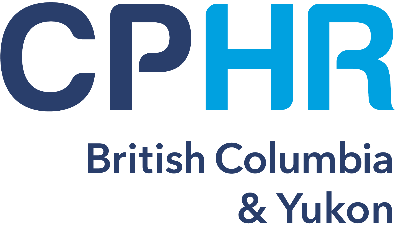Land Acknowledgement
CPHR BC & Yukon believes that acknowledging the land we are fortunate to live and work on, and the people who came before us, is an important step toward reconciliation and achieving the 92nd Call to Action by the Truth & Reconciliation Commission. We encourage everyone to educate themselves on land acknowledgments, Canada’s history with Indigenous people and the 94 calls to action in the Truth and Reconciliation Commission’s Report.
Main Office (Vancouver)
We acknowledge that CPHR BC & Yukon’s main office located in downtown Vancouver operates on the traditional, ancestral and unceded territory of xʷməθkʷəy̓əm (Musqueam), Skwxwú7mesh (Squamish), Səl̓ílwətaʔ (Tsleil-Waututh) nations. We thank their people and the elders who continue to live on these lands and care for them, along with the waters and all that is above and below.
Kelowna Office
We acknowledge that CPHR BC & Yukon’s Kelowna office operates on the traditional, ancestral and unceded territory of the Syilx Okanagan People.
Victoria Office
We acknowledge that CPHR BC & Yukon’s Victoria office operates on the traditional territory of the Lekwungen First Nations, represented today by the Esquimalt and Songhees Nations.
Yukon Office
We acknowledge that CPHR BC & Yukon’s Yukon office operates on the traditional territory of the Kwanlin Dün First Nation and the Ta’an Kwäch’än Council.
What Are Land Acknowledgements & Why They Are Important?
Long before Europeans settled in Canada, it was customary for Indigenous people to introduce themselves and the territory they were from when entering someone else’s territory. Acknowledging someone’s territory was done as a sign of respect to the people whose territory you were entering and the wisdom and resources that their people provide.
Today, land acknowledgements are done for a couple of reasons. Reason one, to acknowledge the unceded territory you are on and the people who never legally gave up the land—acknowledging the the land was never surrendered is an important step towards reconciliation. The other reason is for non-Indigenous and Indigenous people to reflect on Canada’s troublesome past relations with Indigenous people.
How To Do A Land Acknowledgement
Land Acknowledgments should always be done in consultation with Indigenous communities who’s land you/your organization are working on. We recommend connecting with your local Indigenous community for input and advice on how to proceed with acknowledging the land you live and work on. Some Indigenous communities will have statements you can use right on their website.
Call to Action #92 – Business and Reconciliation
We (the Truth & Reconciliation Commission) call upon the corporate sector in Canada to adopt the United Nations Declaration on the Rights of Indigenous Peoples as a reconciliation framework and to apply its principles, norms, and standards to corporate policy and core operational activities involving Indigenous peoples and their lands and resources. This would include, but not be limited to, the following:
- Commit to meaningful consultation, building respectful relationships, and obtaining the free, prior, and informed consent of Indigenous peoples before proceeding with economic development projects.
- Ensure that Aboriginal peoples have equitable access to jobs, training, and education opportunities in the corporate sector, and that Aboriginal communities gain long-term sustainable benefits from economic development projects.
- Provide education for management and staff on the history of Aboriginal peoples, including the history and legacy of residential schools, the United Nations Declaration on the Rights of Indigenous Peoples, Treaties and Aboriginal rights, Indigenous law, and Aboriginal–Crown relations. This will require skills based training in intercultural competency, conflict resolution, human rights, and anti-racism.
